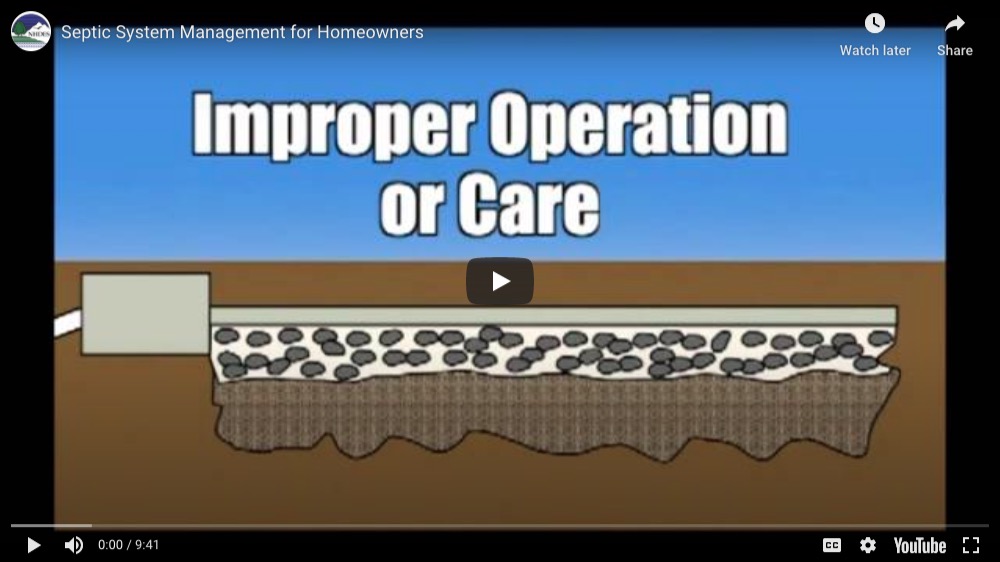Septic Pumping Services
Effective septic pumping services to increase longevity and keep your systems up and running
Septic Pumping
Maintaining your septic tank on a routine basis is a major factor is prolonging the life of your septic system. When proper maintenance is practiced in addition to the responsible practices of the home owner, the septic system can increase its longevity. Although every leach field is bound to fail at some point, the rate at which this happens is affected by maintenance and the waste stream from the home.
How Does A Septic System Work?
A healthy septic system should have 3 distinct layers. The top layer is sometimes called the cake, crust, or scum layer. This layer is made up of mostly fats, oils, greases, and paper products. The middle layer is referred to as the clarified layer. This layer contains the least amount of solid matter and is the only layer that should be allowed to leave the septic tank. This layer is also know as effluent. The bottom layer is where the sludge settles out. If this layer is allowed to grow too large, excess sludge can escape from the tank and enter the leach field.
Septic systems depend on bacteria to take the waste our bodies produce and break it down even further. Your septic tank is home to anaerobic bacteria which are responsible for the initial treatment in your system. They are also responsible for that rotten smell. The leach field is the last stop for local treatment before the soils below filter it even more. The leach field is home to aerobic bacteria. This type of bacteria requires oxygen to survive and function efficiently. If a system is buried too deep, it will suffocate. If you have vents on your lawn (candy canes) be sure to leave them in place.
Frequently Asked Questions
Considering your septic system is such a large investment for your home, it is important to ensure it is staying maintained and running properly. Following are some frequently asked questions to help you better understand the proper measurements you should be taking to keep your system running for a long time.
The idea behind having your tank pumped is to remove the built up waste in the tank before it accumulates to the point that larger amounts of particulate escape to the leach field. Once excess sludge has reached the leach field a layer forms in the bed of the field and seals shut. This layer prevents effluent from draining into the soils below. What this all means is that excess sludge can lead to premature failure of your septic system.
There are many factors that affect the frequency in which your tank should be pumped out. How many people are in the home, the size of the septic tank, age of the people in the house, and even illness can impact the time between cleanings. The average time for a household of 4 on a 1000 gallon tank is 2-3 years. Once your system has developed a service history we are more able to recommend a service frequency.
We request that the dirt be removed from the tank clean out lids prior to our arrival. This expedites the service and allows us to keep our prices fair. We will dig in situations where the home owner is not able or would like to pay to have the tank dug for them. If you are unable to locate your tank we can usually find them by probing or by electronic means.
When we arrive at your property we will locate the tank and remove the appropriate covers. Vacuum hose will then be run from the truck to the tank. The truck will remain in the driveway as we never back across grass. Better to work harder and not damage property or get a truck stuck. The tank will be emptied and back flushed as necessary. When we are finished pumping, your tank will be as empty as possible with only a trace of liquid on the bottom. We will inspect both baffles and have the toilet flushed if someone is home. We do this to verify that there are no obstructions in the inlet line.
Quite simply, yes.
- Avoid Driving over your septic tank unless it is rated for vehicular traffic
- Avoid driving over your leach field – You may potentially damage the pipes or compact the drainage soils
- Divert any run off away from your field – A leach field saturated by ground water will have trouble absorbing effluent from your septic tank
- Avoid putting grease down your drain
- Garbage disposals should be avoided unless your system is designed for it
- Avoid flushing feminine products, condoms, cat litter, paper towels, baby wipes, etc.
- Water treatment systems that back wash should not be plumbed to drain into the septic tank
- Conserve water as much as possible – A saturated field will act like a failed system
- Additives are not recommended or necessary if you properly maintain your septic system.
Protecting Your System
The septic system for your home or building is a large investment, and it is important to make sure that you’re doing everything that you can to properly care for your investment. Effectively maintaining your system will ensure it is running properly and producing at its highest possible leave. If you have questions regarding your systems health, please give us a call or get in touch.


